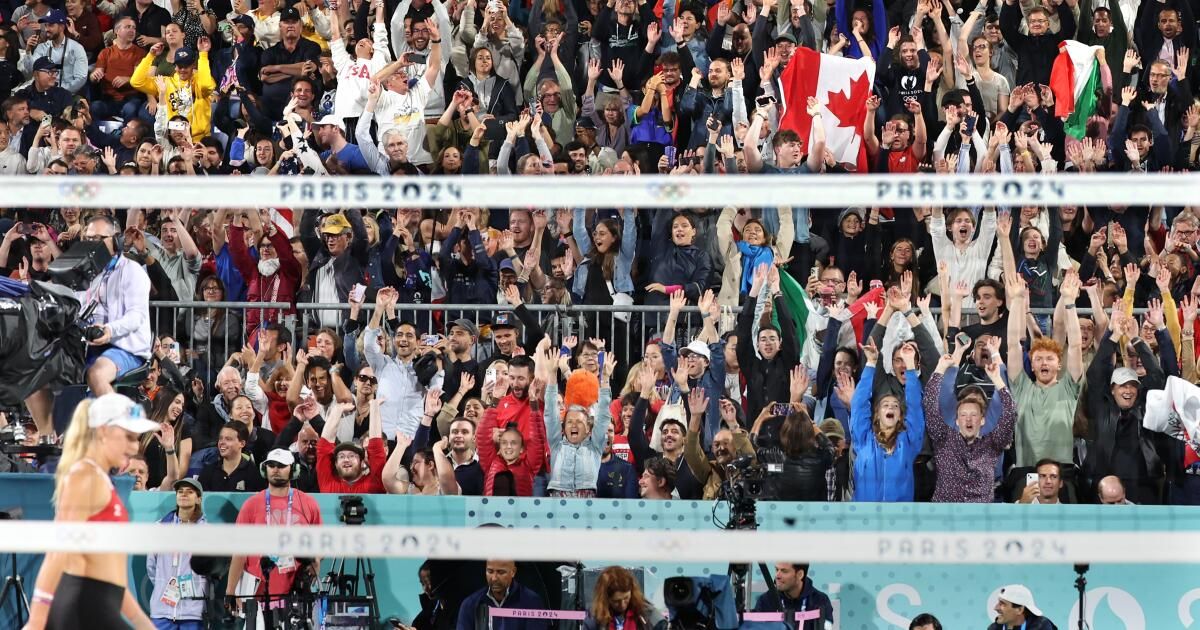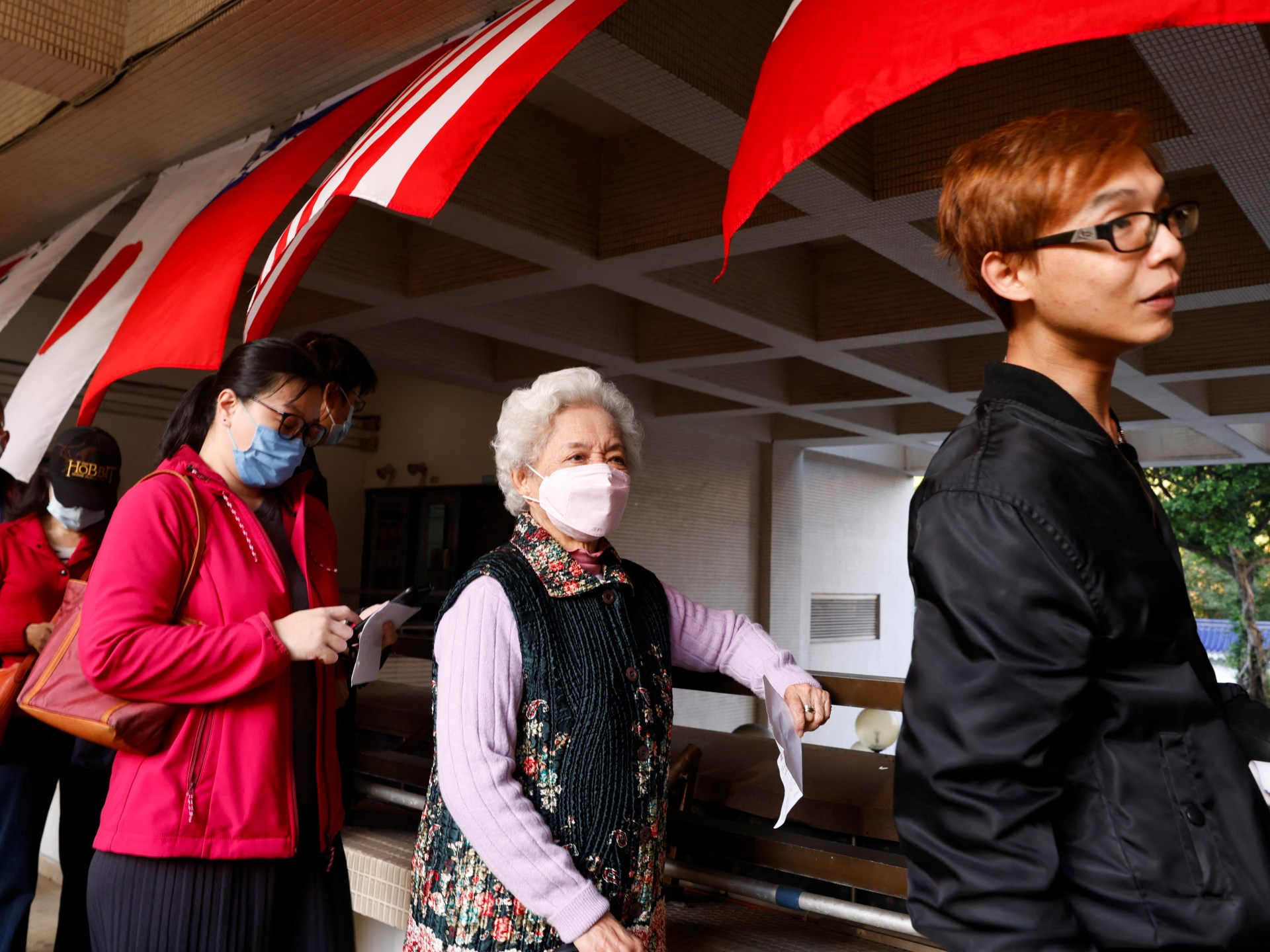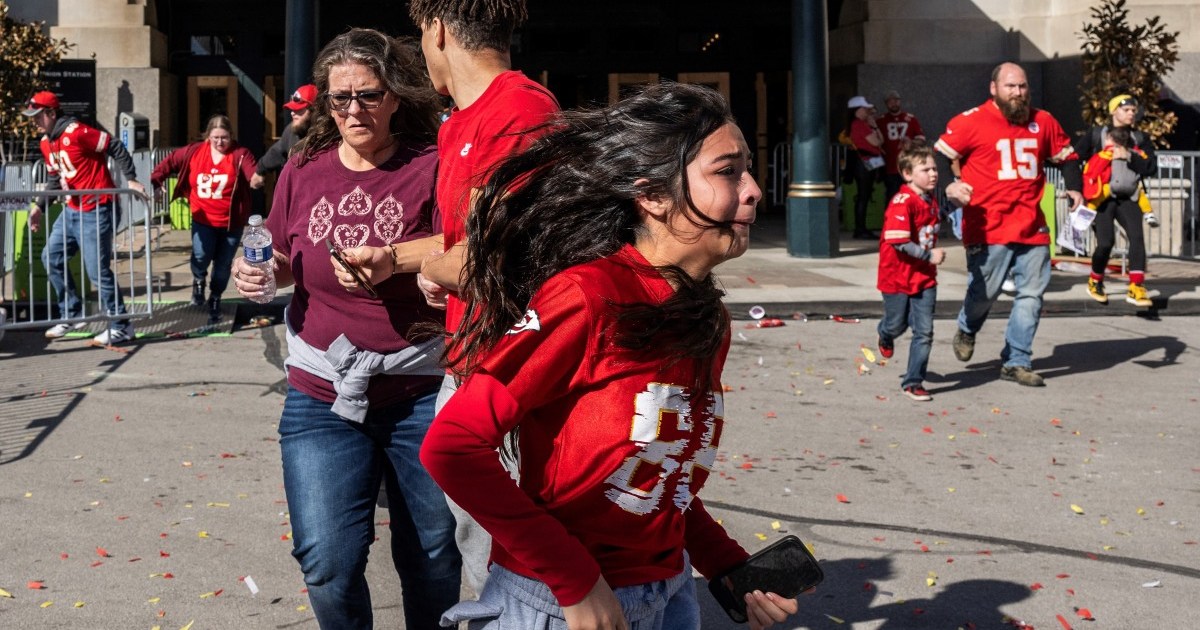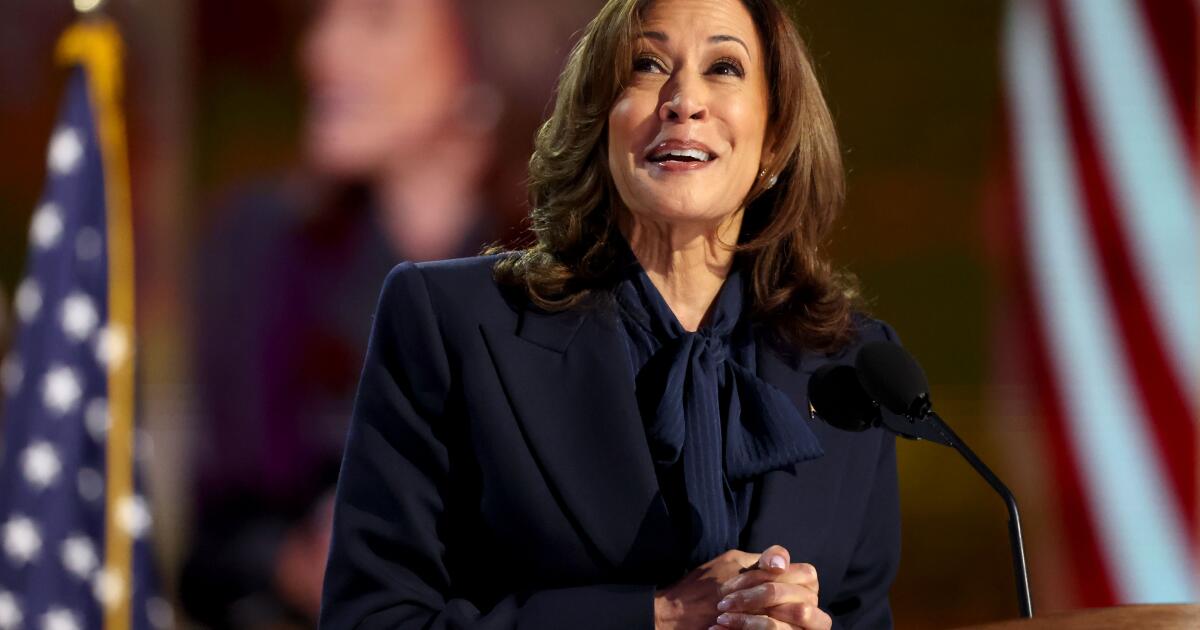In what has become a daily ritual, crowds jostle along the Champs-Élysées, avoiding expensive cafes and shops, and moving east in such large numbers that they spill off the sidewalks and onto the street.
They're heading to fencing at the Grand Palais or skateboarding at the Place de la Concorde. An Uber driver grumbles as he makes his way through the chaos.
“Too many people,” he says.
Scenes like this have been seen across the city in the opening days of the 2024 Summer Olympics, with crowds of fans flocking to stadiums and arenas. Once inside, they have cheered, chanted and sung “La Marseillaise” for the French athletes.
All of this is good news for the Games.
American gymnast Simone Biles waves to fans after the women's gymnastics qualifications at the Paris Olympics on Sunday.
(Wally Skalij / Los Angeles Times)
A global pandemic affected the last two editions of this international competition in Tokyo and Beijing. Spectators were banned, leaving athletes competing in eerie silence. There were few crowds in public spaces.
Now Paris is showing signs of recovery. Although final figures for tourism and ticket sales have not yet been determined, sports such as rugby and basketball have already achieved record attendances.
It seems that the Olympic Games are regaining their popularity.
“We all had a lot of fun with the crowd and the energy,” said U.S. gymnast Suni Lee, who won gold in the all-around competition in an empty Tokyo stadium. “It’s going to be a lot more fun this time.”

Not everyone is happy with these first post-COVID Olympic Games.
Shopkeepers and hoteliers have complained that business has been slower than expected in some areas, and the Paris tourism authority recently cut its visitor forecast from 15 million to 11 million. Although organizers reported selling a record 9.7 million tickets, hundreds of thousands were still available.
To put the current situation into context, it helps to look back.
In 2021, the postponed Tokyo Olympics and their empty venues gave a feeling of sterility, a lack of surprises and spontaneity, almost as if this were a sport carried out in a laboratory. From the stands, journalists could hear coaches shouting advice.
Thirty-two athletes tested positive for COVID-19 and at least 18, including a German cyclist, a Dutch skater and a Trinidad and Tobago hurdler, were withdrawn from the competition. Greece had to withdraw its entire artistic swimming team.
“It was really hard to get over that barrier,” said U.S. skateboarding bronze medalist Jagger Eaton. “It was really tough.”
The 2022 Winter Games in Beijing were supposed to herald a return to normality as vaccinations ramped up and COVID cases declined around the world. Then the Omicron variant hit, prompting Chinese authorities to implement tough restrictions.
All Olympic participants were required to undergo daily throat tests, wear masks and have their temperature checked frequently. With these protocols, testing numbers improved, but attendance at events was limited to a select group of invited guests.
“To be honest, it took away from the drama of the environment,” said NBC anchor Mike Tirico, who left China early for the Super Bowl and covered the rest of the Games remotely. “It had no texture. It had no feel, it had no warmth.”

The International Olympic Committee, already facing an aging fan base and struggling to attract a younger demographic, needed good news in France.
“Frankly, I think it was a miracle that the Games were able to take place during the COVID-19 pandemic,” said Michael Payne, a sports consultant and former IOC executive. “But there’s no doubt that they had a difficult few years.”
Paris scored its first victory when hundreds of thousands of people braved a fierce summer storm to watch the opening ceremony on the Seine. The next morning, the queue to enter an official merchandise store near the Petit Palais stretched to the end of the street.
1
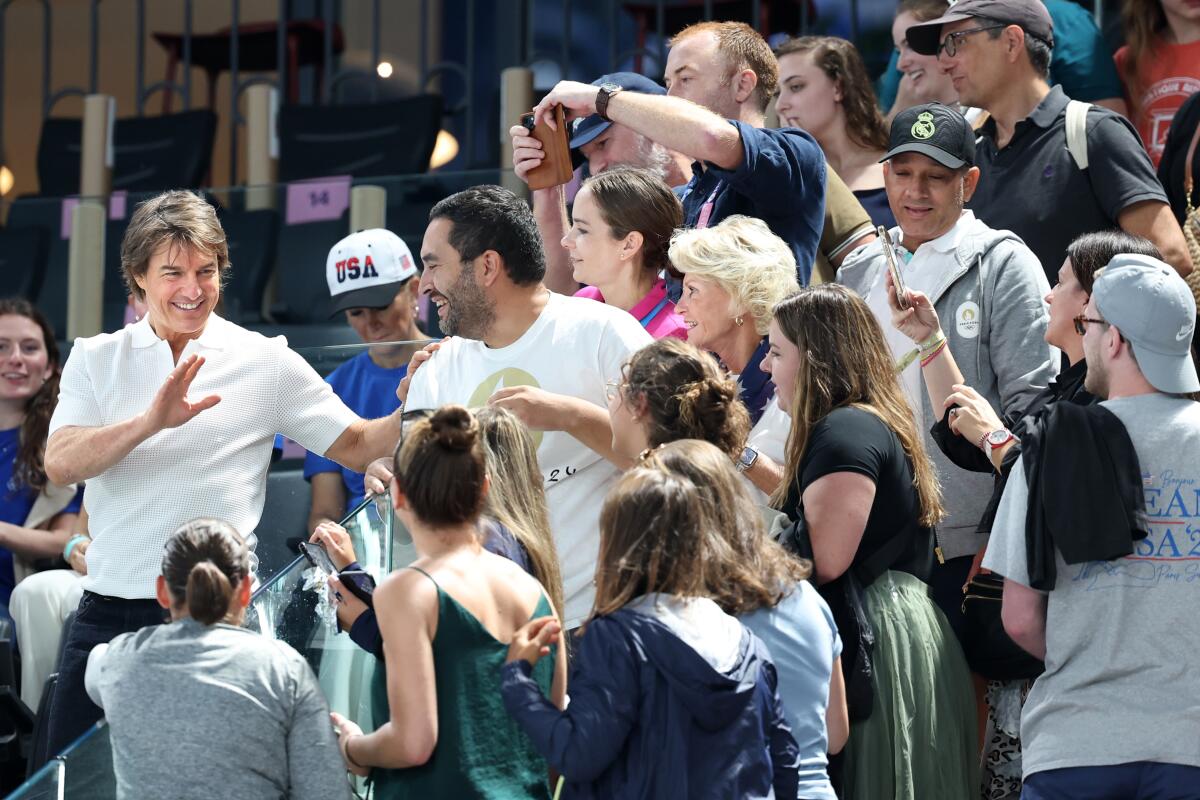
2
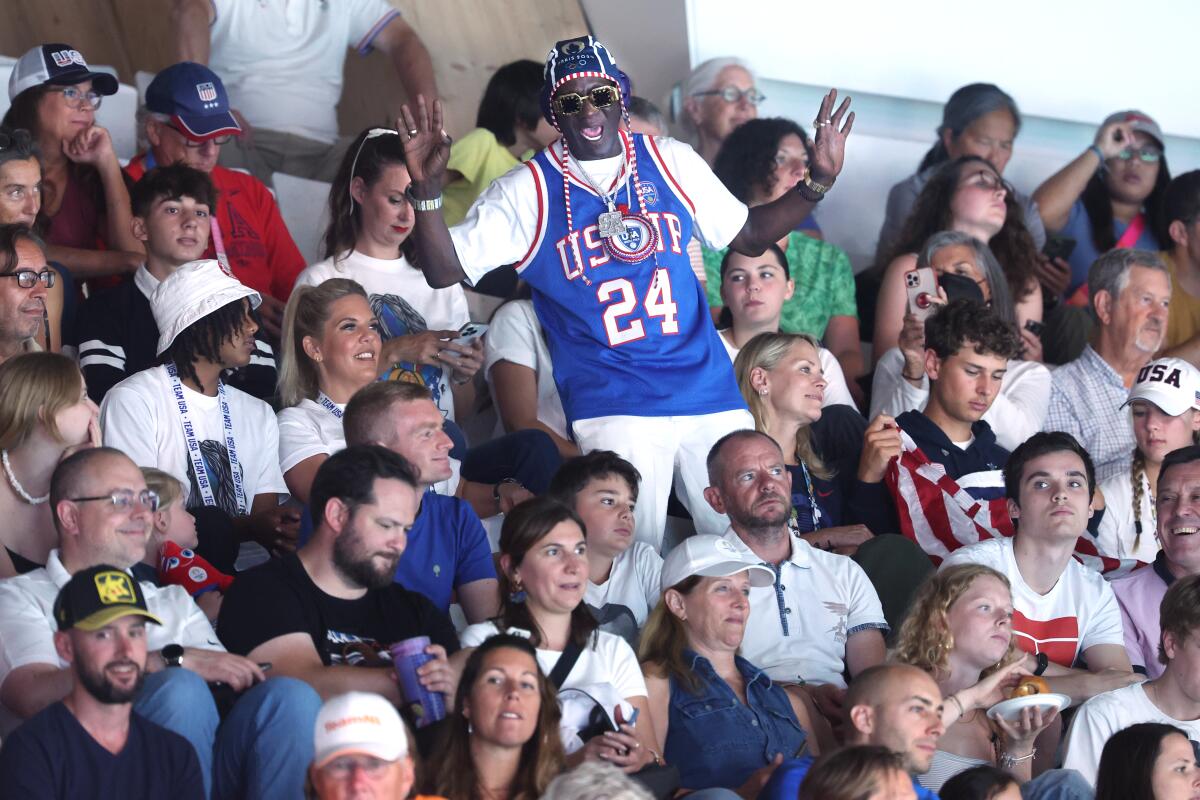
3
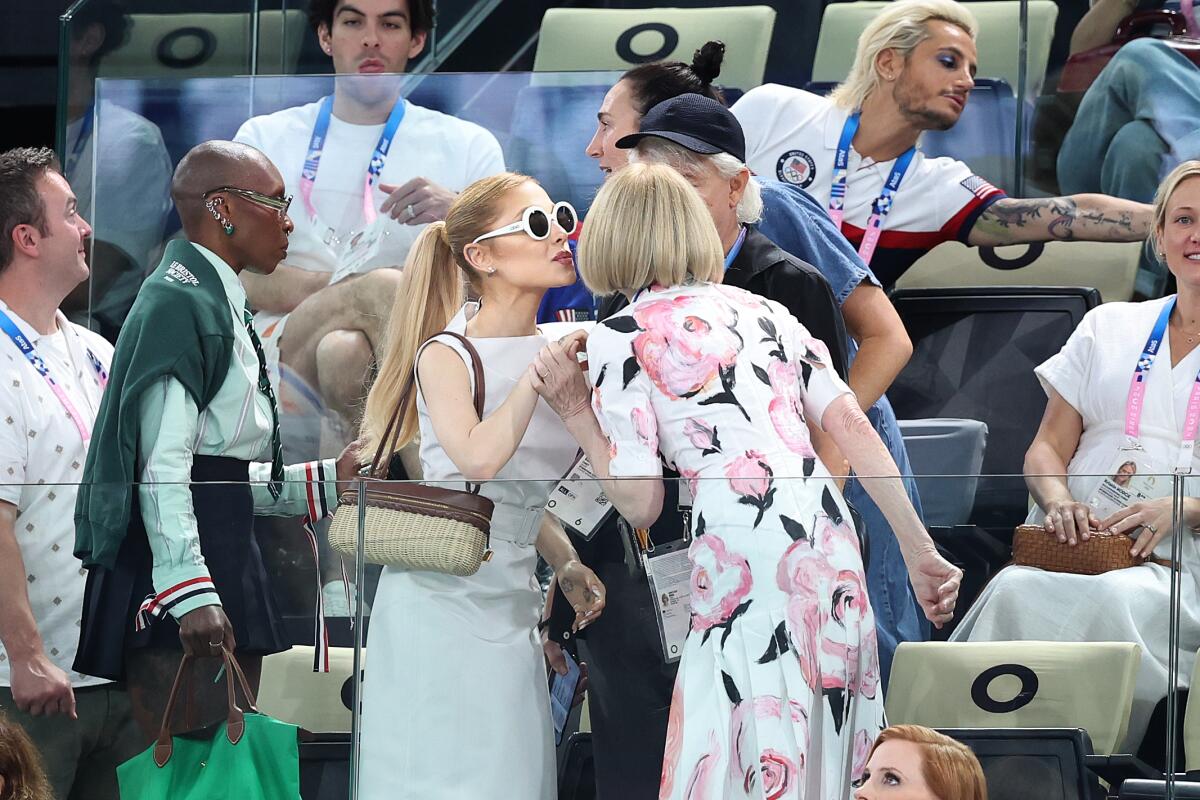
1. Actor Tom Cruise greets fans before the women's gymnastics team's qualification for the Paris Olympics on Sunday. 2. Rapper and official U.S. women's water polo cheerleader Flavor Flav cheers during a match against Greece on July 24. 3. Recording artist Ariana Grande, left, and Vogue editor-in-chief Anna Wintour greet each other as they attend the women's gymnastics qualifications at the Paris Games. (Wally Skalij / Los Angeles Times)
On the first day of men's football, the Orange Velodrome in Marseille was packed with 76,000 spectators. Ticket holders queued up to swim at the Arena La Defense. Badminton players were surprised by the turnout at the Porte de la Chapelle.
“Even at 8am, the stadium was packed,” said India’s Satwiksairaj Rankireddy. “I love the feeling of playing in front of such a big crowd.”
At the Arena Bercy, they clapped in unison to a deafening techno beat as the gymnasts rotated through the events. At the Grand Palais, the fencing referees had to wait for the applause to die down before declaring “Allez” to start the next point.
“There is nothing comparable to this, absolutely not,” said American fencer Lee Kiefer after winning gold in the women’s foil. “This is the ultimate.”
There have been other positives, too: Olympic athletes have their families and friends in the stands, they can attend other sports on their days off and socialize freely in the Olympic Village.
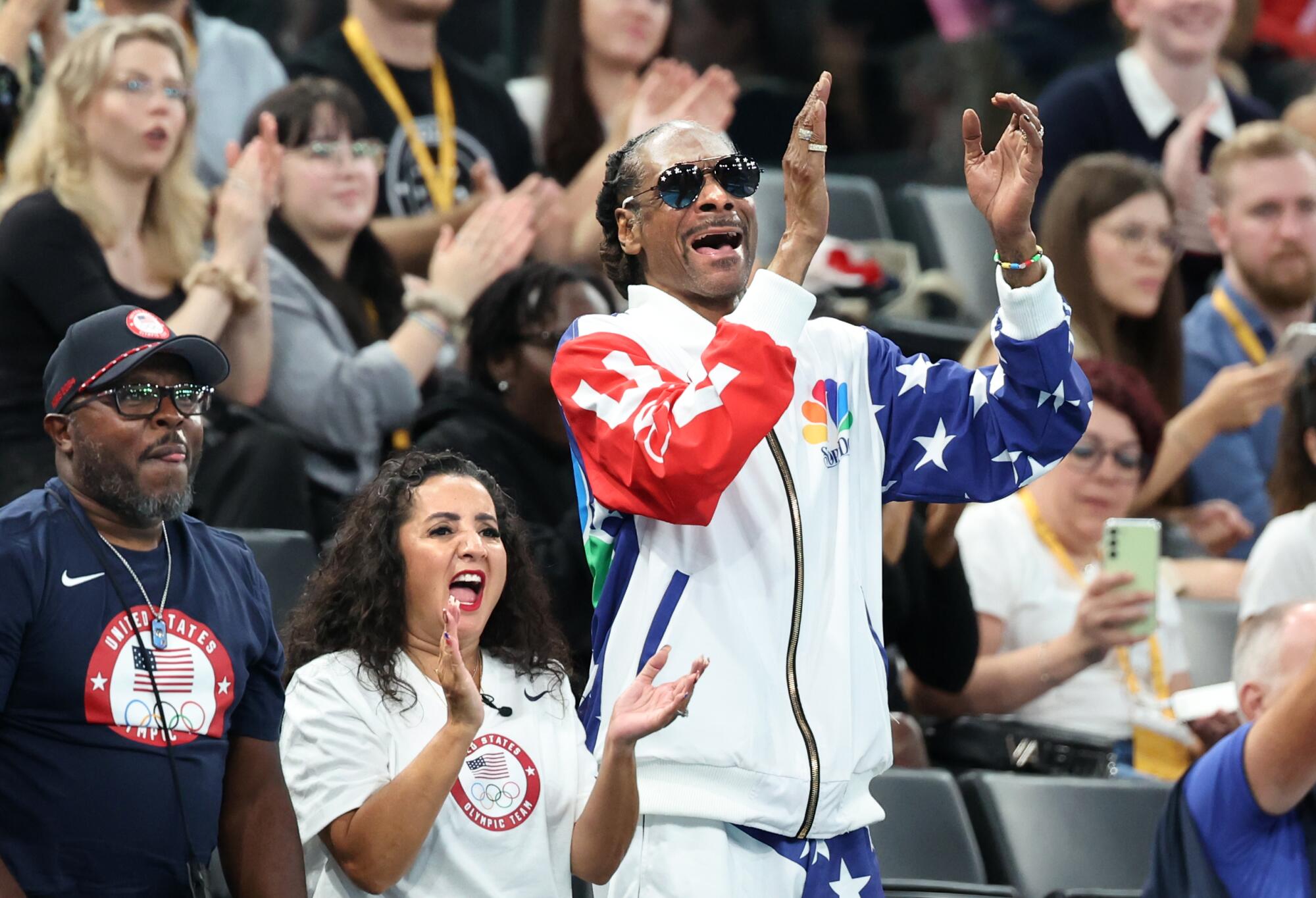
Rapper Snoop Dogg cheers during the women's gymnastics qualifications at the Paris Olympics on Sunday.
(Wally Skalij / Los Angeles Times)
“This is the Olympic dream you imagined since childhood,” said Lena Micheel, a German field hockey player. “Meeting the other athletes and being in contact with everything… Tokyo was a completely different story.”
The most important thing is that there are no more tests and there is no threat of the new coronavirus.
Earlier this week, a British swimmer and five members of the Australian women's water polo team fell ill with COVID, but an official said the illness was being handled “in the same way as other germs like flu.”
No one was sent home. The athletes continued training and were eager to compete.

